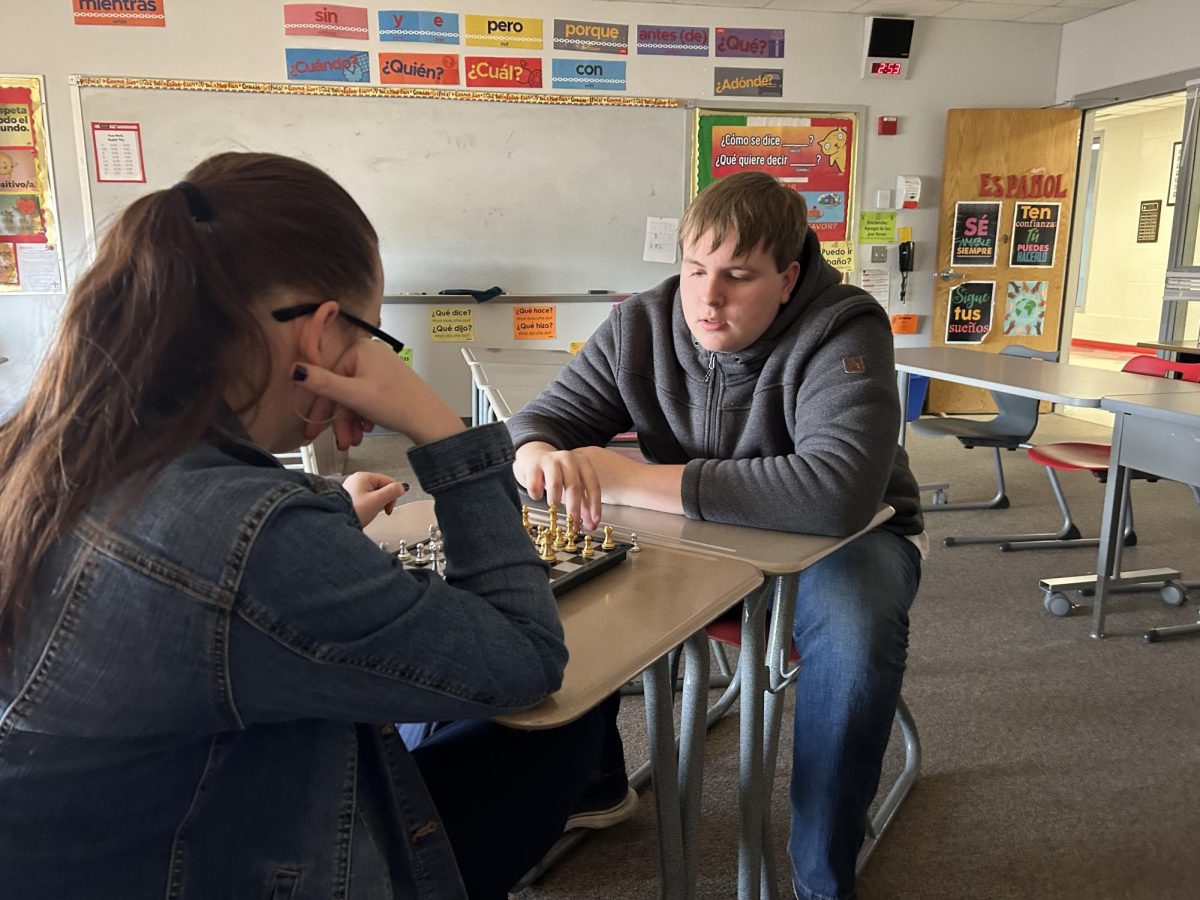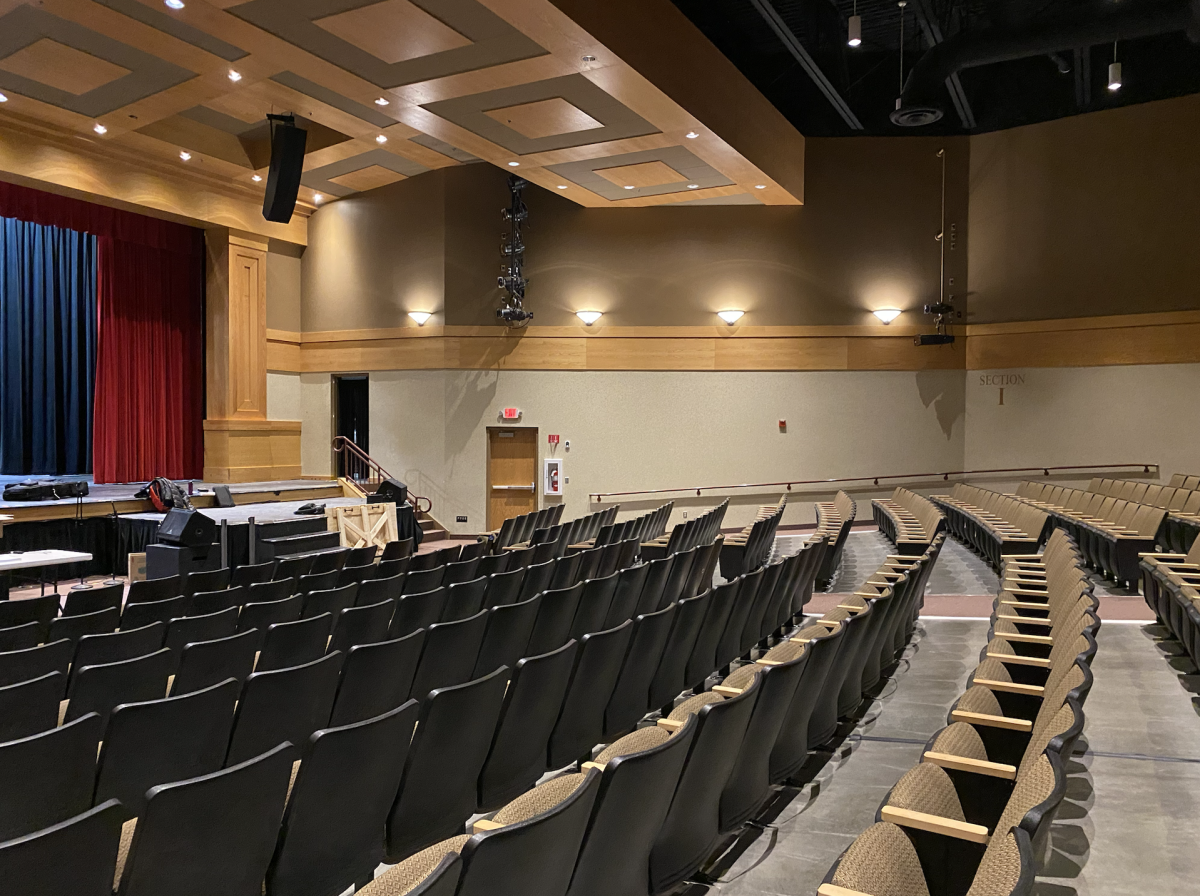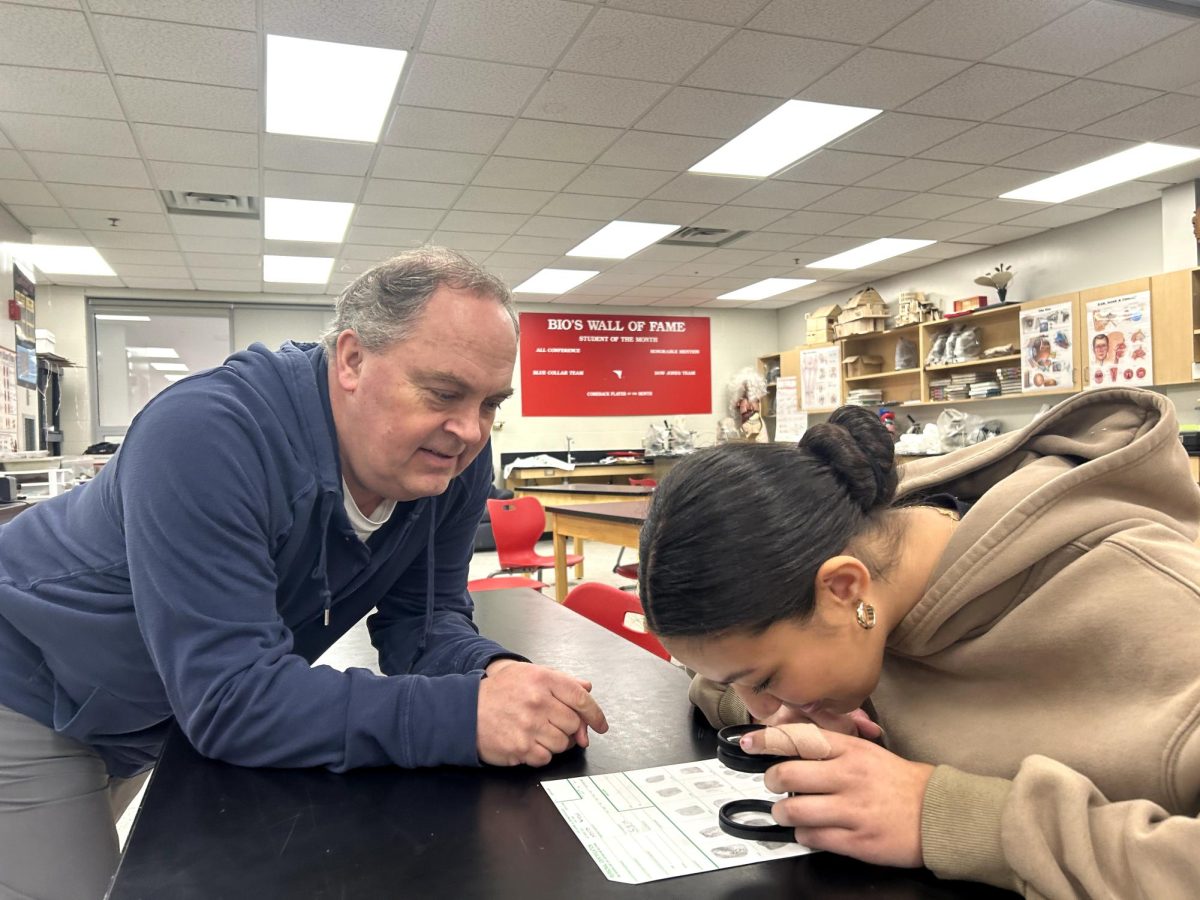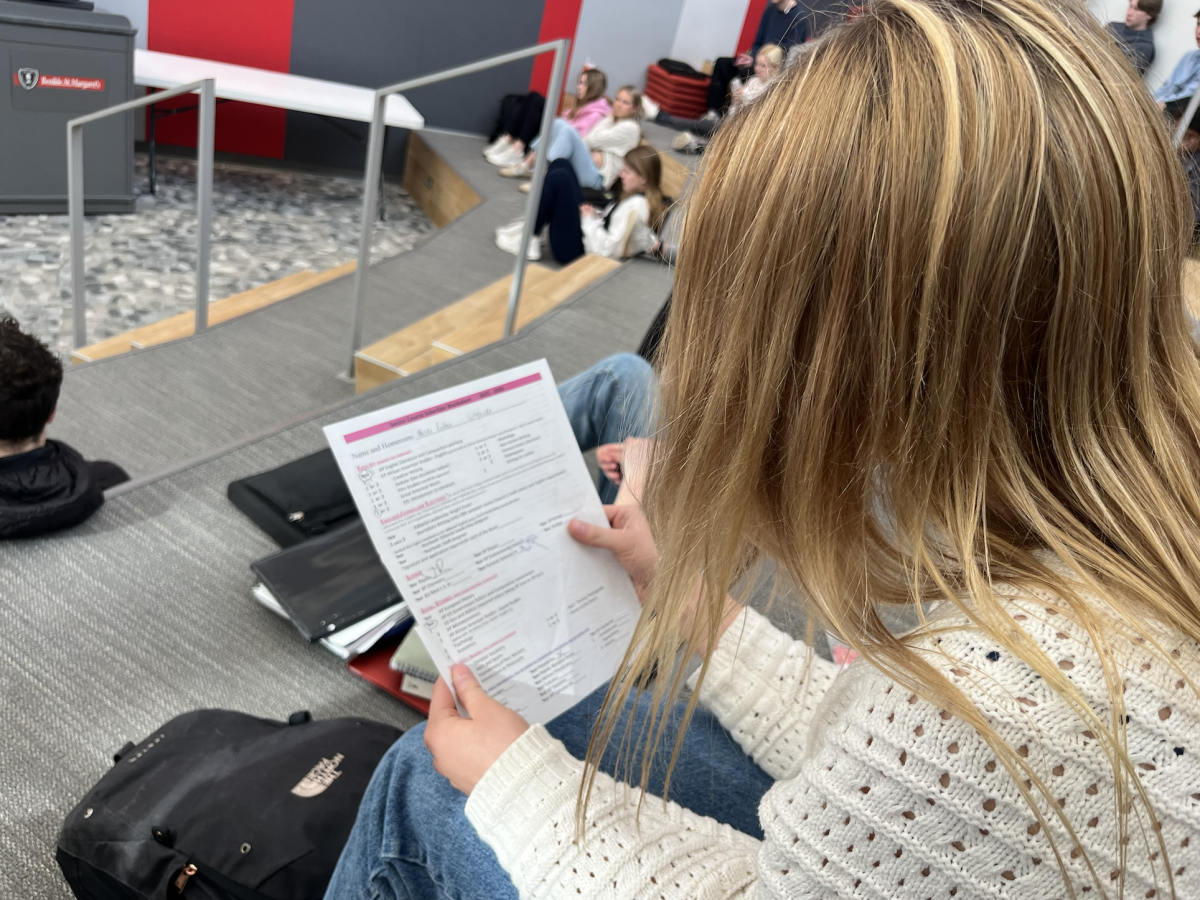Every student begins his or her lengthy years of schooling with the basics: one plus one equals two, the ABCs, etc. For some students, these basic skills are learned in a language other than their first. In many ways, students who attend immersion schools face a more difficult transition than regular students as they not only have to adjust to learning for the first time, but they also have to do this in a language that is not their first. After six plus years of immersion, students generally acclimate to their unique school environment. But what happens when those students leave immersion and enter a regular high school?
Junior Piper Roos attended a Spanish immersion school from Kindergarten through 5th grade. Her school focused on fully immersing students from the minute they walked through the door. “We didn’t have a single class in English until I was in third grade, and that first English class was only for an hour, and it got to an hour and a half during fourth and fifth grade. But other than that, you were supposed to speak Spanish,” Roos said.
Learning subjects in other languages evidently comes with some challenges, especially having to learn them in English upon entering high school. “I struggled a lot with word problems in math because I really wasn’t used to reading words not in Spanish. When we were learning PEMDAS, I thought that it was PEMSR because that’s just how I had learned it,” sophomore Juliet Scallon, who attended a Spanish immersion school, said.
Roos faced similar struggles, specifically in English class. “I feel like I’m more behind in grammar and sentence punctuation definitely. I feel like those are things that get marked up a lot in my essays,” Roos said.
However, some immersion students feel that learning in another language wasn’t much of a setback at all. Sophomore Ellie Schmitt went to a French immersion school for six years and doesn’t feel that classes in French set her back in any way. “I think it set me back a bit in English. But in other subjects, like science and math, not at all,” Schmitt said.
Despite the challenges, attending an immersion school also has several benefits and advantages. Scallon especially liked getting to see other cultures and languages through her immersion school. “I think it really helps you kind of grasp the fact that there is a whole world out there outside of your little corner. At my school, we had interns who came in from other countries and who only spoke Spanish, and so you kind of get to experience that and realize English isn’t the only language that exists,” Scallon said.
Immersion students also have the advantage of being vastly further ahead in language classes than most students, which allows them to take more advanced classes earlier and later focus on other opportunities. “I started in the French program way further along than everyone, so I actually finished AP French last year, and this year, I’m a TA…just overall, you get a really far boost,” Schmitt said.
Ultimately, starting school in a different language comes with many challenges, but it is also an opportunity to expand one’s cultural horizons, and many immersion students are grateful for that experience.




































![Teacher Lore: Mr. Hillman [Podcast]](https://bsmknighterrant.org/wp-content/uploads/2025/03/teacherlorelogo-1200x685.png)




